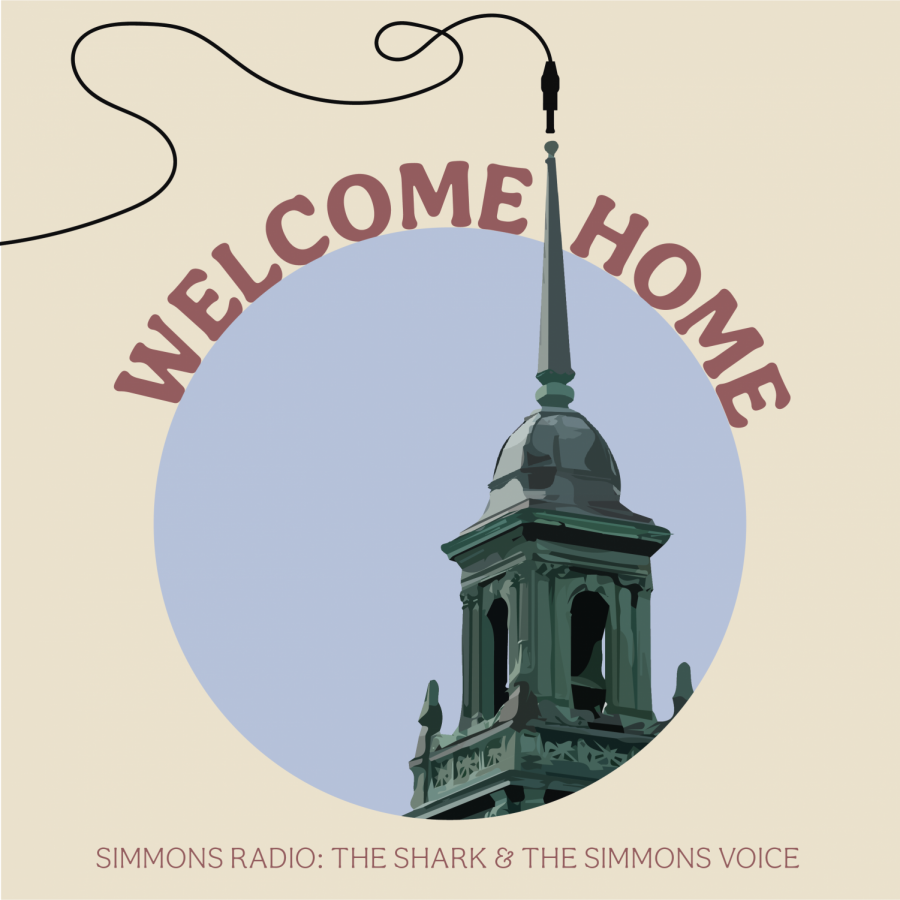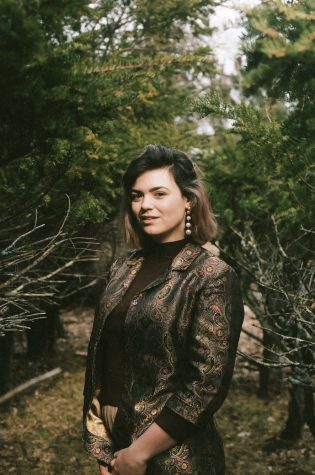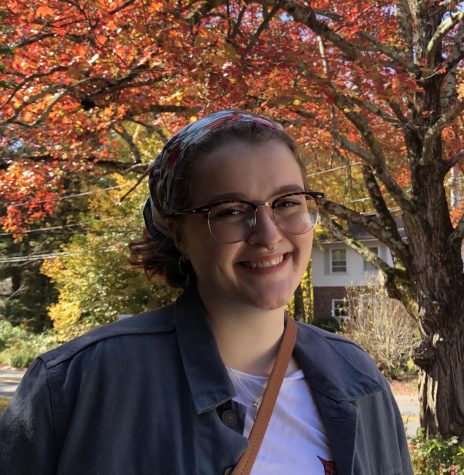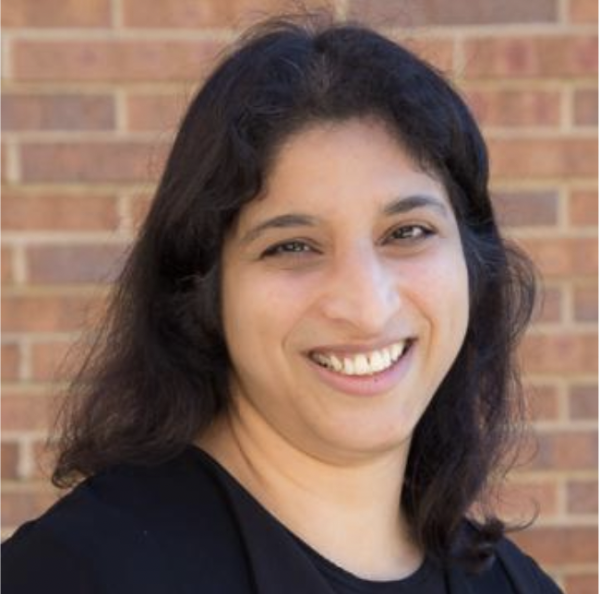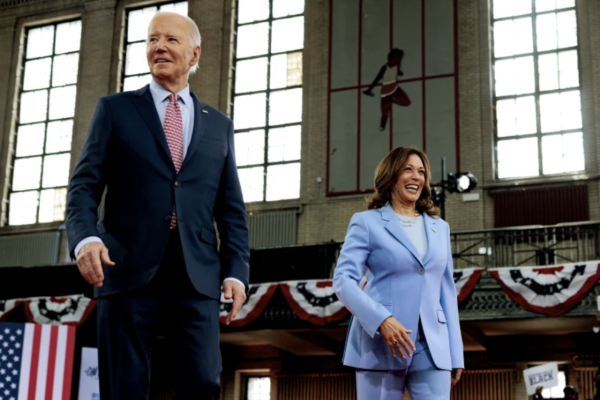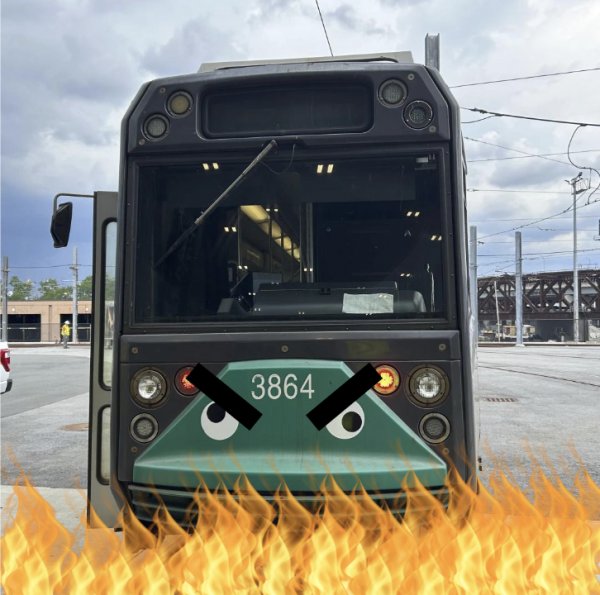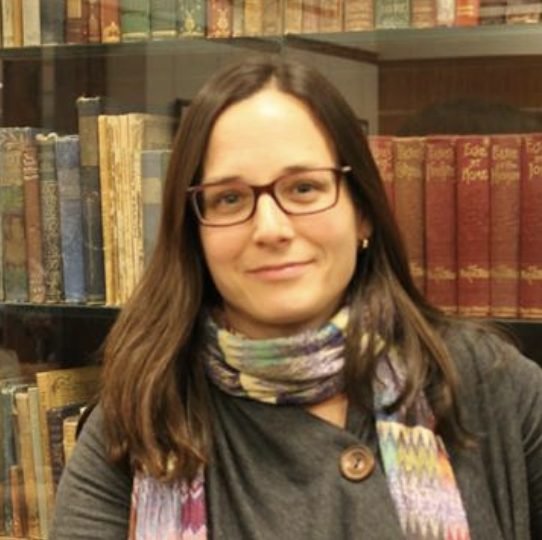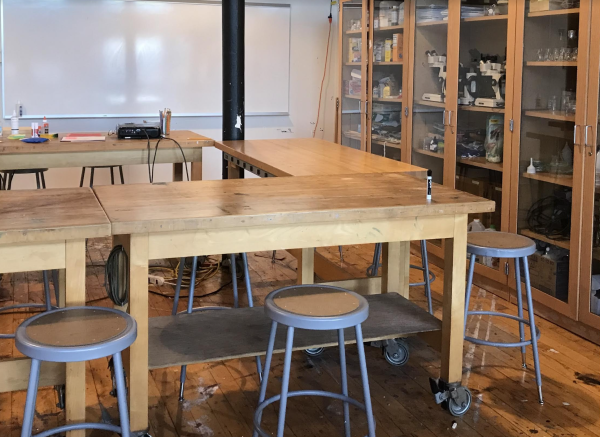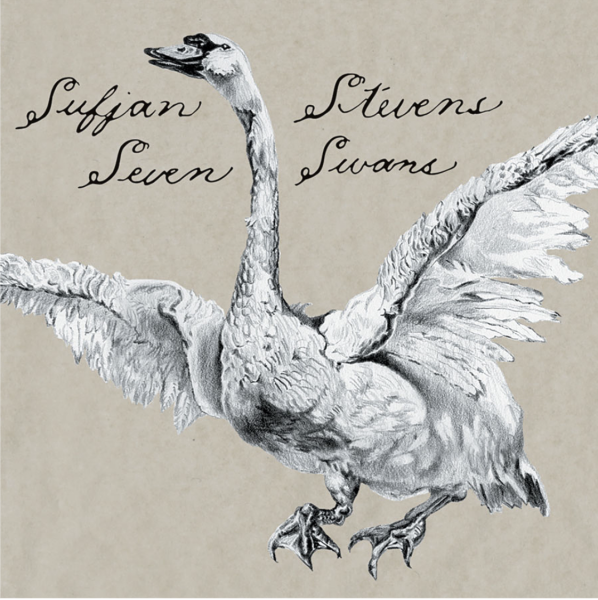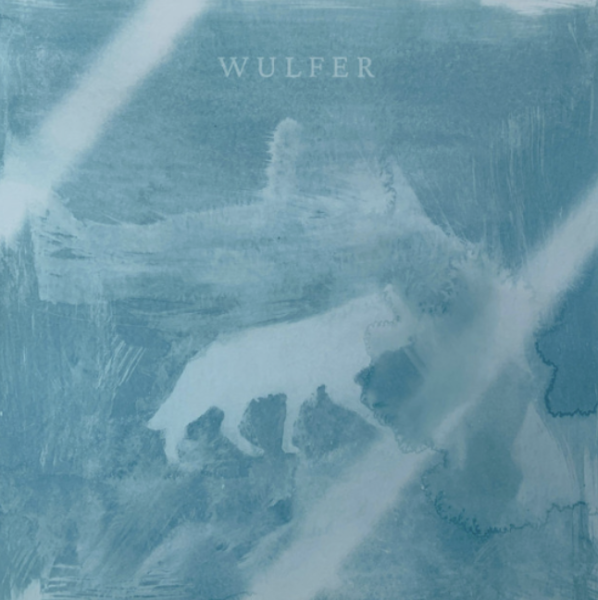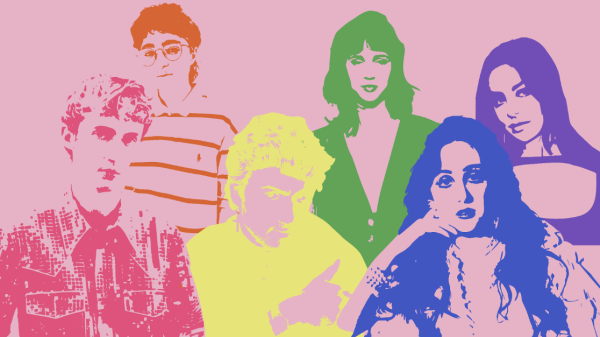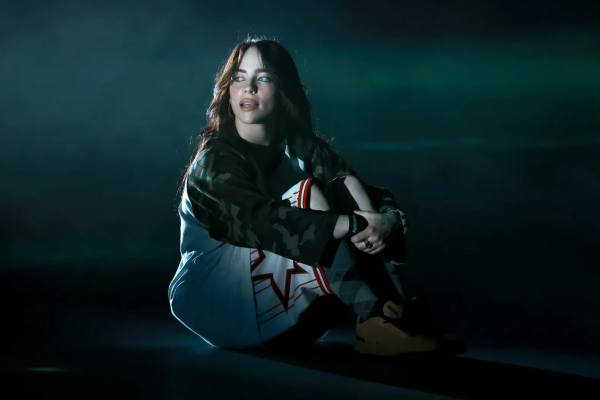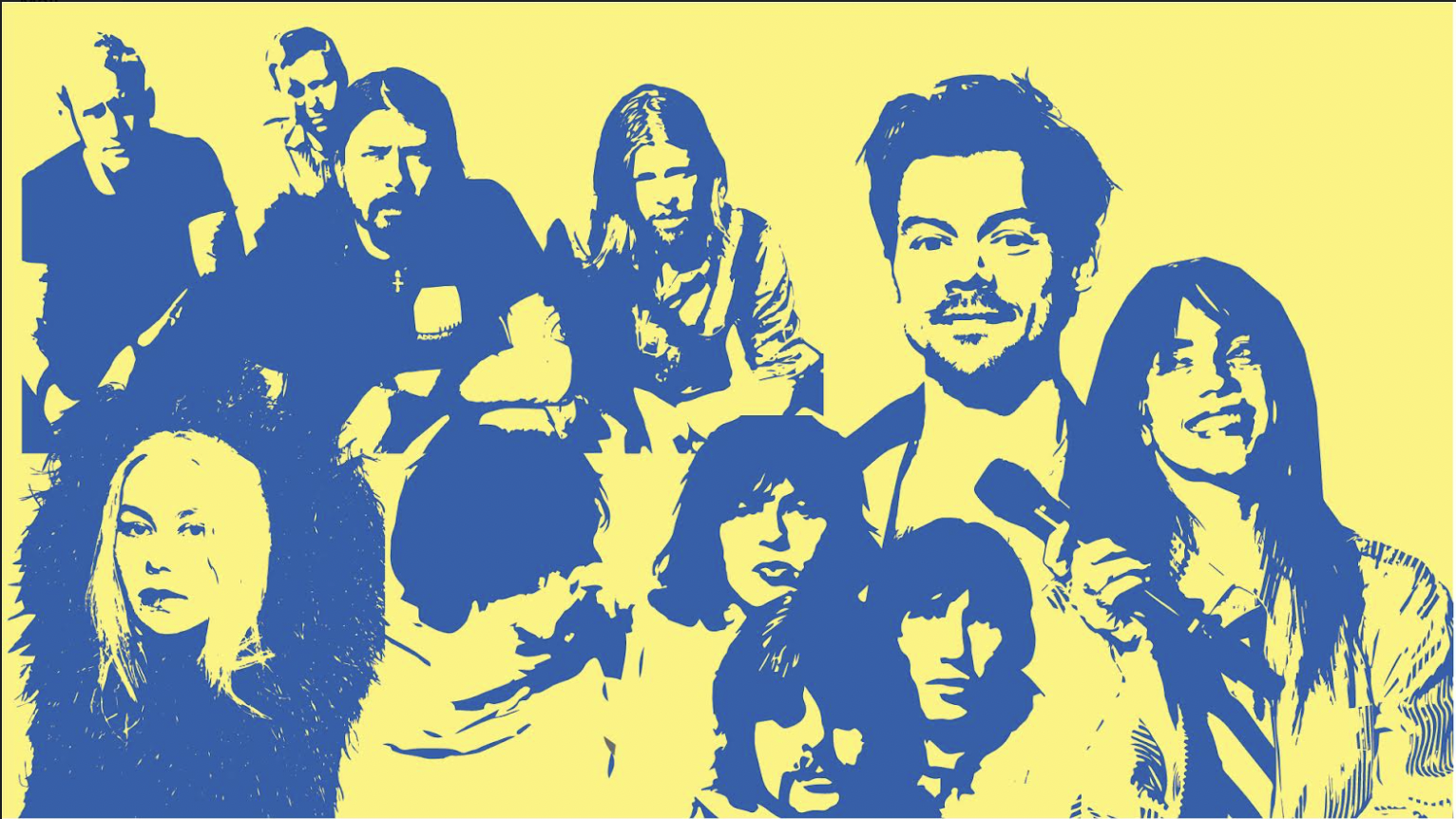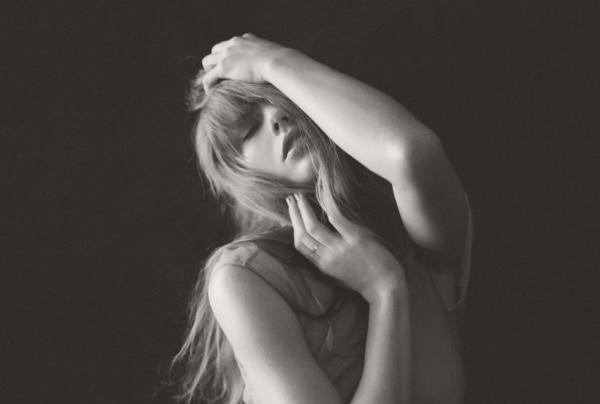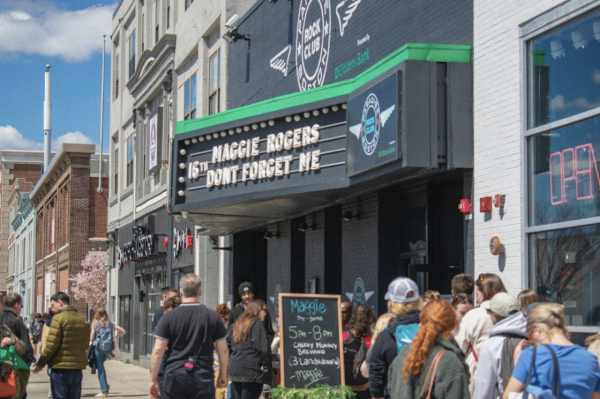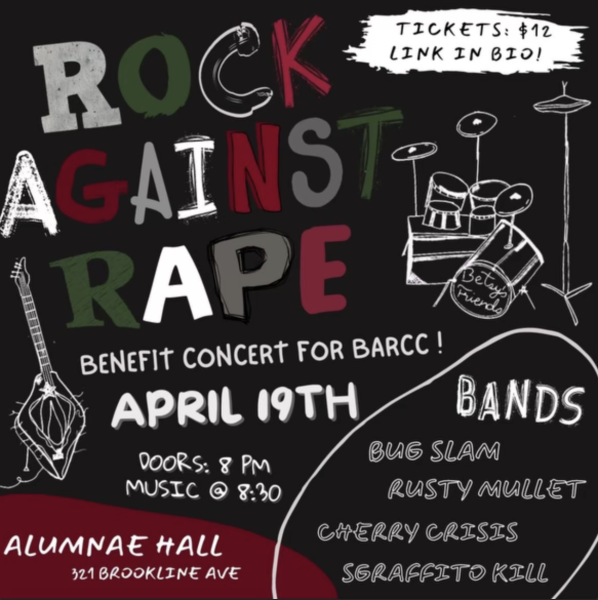Welcome Home, Ep. 2 Transcribed
October 20, 2020
We want to do our best to have as many folks as possible feel at home. Here is a transcription of the episode if you don’t get the chance to listen.
CARLON, SARAH – Breaking news for the morning of Monday, October 19th. All spring 2021 classes, graduate and undergraduate will be online, according to an email to the Simmons community this morning. Administration has not made a decision whether they will allow more students to live on campus.
The email reads “for the spring semester all courses, undergraduate and graduate will be offered online. We are taking this proactive step to prepare for the worst case, and to ensure the least amount of disruption to our students and faculty should the pandemic continue to get worse. While we are not yet ready to make a decision about the return to campus, rest assured that we are working hard to make the most responsible and safe decision possible.”
To stay updated with this developing story, visit simmonsvoice.com
INTRODUCTION MUSIC BEGINS TO PLAY
ANNOUNCER – Welcome Home. From Simmons Radio: The Shark and The Simmons Voice, this is Welcome Home. A show about news, culture, and stories that impact Simmons University. No matter where you are we’ll keep you updated on what’s happening at home.
INTRODUCTION MUSIC FADES OUT
COLE, KATIE – Welcome back to Welcome Home. This is Katie Cole. I use she/her/her/hers pronouns.
INDELICATO, IZ – My name is Iz Indelicato and I use they or she pronouns.
CARLON, SARAH – My name is Sarah Carlon and I use she/her/hers pronouns.
VERVAEKE, ABBY- My name is Abby Vervake and I use she/her/hers pronouns.
COLE, KATIE – We have a lot to talk about today so we are going to jump right in with Abby’s story on the upcoming Ifill forum. Abby, take it away.
VERVAEKE, ABBY – Simmons announced the second annual Ifill Forum recently. The event will take place virtually on Saturday, November fourteenth from three to four p.m. The forum’s topic of discussion will be “Facing the Hard Truths.”
Washington Post columnist Michele Norris, who was good friends with the late Gwen Ifill, will moderate a conversation between Ava DuVernay and Sherrilyn Ifill, Gwen Ifill’s cousin and president and director-counsel of the NAACP Legal Defense and Educational Fund. DuVerney is a writer, director, and producer and she’s most known for her work in the films Selma and A Wrinkle in Time, the documentary thirteenth and the docuseries When They See Us.
After the conversation between Norris, DuVernay and Ifill, Simmons President Lynn Perry Wooten will lead a community conversation on moving from discussion to action. The conversation will be limited to Simmons students, faculty, staff and alumni.
It’s worth noting that the first Ifill forum was not without controversy. Simmons Alum and NBC News Correspondent Rehema Ellis left a comment on the Voice story about the Gwen Ifill Forever Stamp last fall criticizing the event. She pointed out that Gwen Ifill believed in holding truth to power, and yet there was no opportunity to ask questions or discuss the controversial hiring of Dean Brian Norman during the event.
She also talked about how the event was not streamed or available to the public. With the second forum being virtual this year and a community conversation that includes alums taking place, it’s unclear if Ellis will attend.
With that being said, Brian Norman, dean of the Ifill College, wrote in a statement to the voice that with the move to a digital format, the college can expand its vision of public engagement as Simmons becomes part of the national conversation.
Both Dean Norman and President Wooten expressed to The Voice how the Ifill Forum could bring some much needed moral clairy during a very challenging year.
COLE, KATIE – So Abby, I actually have a question for those of us who don’t know, or may be a little bit unfamiliar. Can you explain why Dean Norman’s hiring was so controversial?
VERVAEKE, ABBY – Sure, as many people know Gwen Ifill was a pioneering Black female journalist who is one of Simmons most notable alums. In 2018 when Simmons became a university and split off into the four colleges, one of those colleges was named The Gwen Ifill College of Media, Art, and Humanities.
During the hiring search for the inaugural dean, there were no candidates of color in the final round of the hringing process, leading to the hiring of Dean Brin Norman, who is a white cis man.
The hiring of a white cis man for a college which is named after a famous and pioneering Black woman did not sit well with many.
CARLON, SARAH – Abby, I was wondering why is the conversation with President Wooten closed to students, faculty, and alumni of the school?
VERVAEKE, ABBY – President Wooten didn’t say exactly why it would be limited to students, faculty, staff, and alumni, however the intention of the conversation is to be specific to our community. So I think keeping that conversation limited to those people makes it more personal and allows us to be more specific in that conversation.
INDELICATO, IZ – Something that I think that has been interesting and has been a conversation that has been going on, is what is the line between honoring and tokenizing and I’m hoping that facing the hard truths with this upcoming Ifill forum, maybe that will be addressed, or at least acknowledged in some way.
COLE, KATIE- Abby, thank you so much for covering this for us, I’m looking forward to seeing how the event pans out. Now we are moving onto a piece that I did about Hurricane Delta- which is a hurricane that just hit the Gulf Coast last week. I talked to a student Kelly Cotton about her experiences, so let’s take a listen.
TRANSITION MUSIC
COLE, KATIE prerecorded – Working from home has provided yet another new challenge. Some students are now living in the path of natural disasters. Earlier this year I reported on Simmons students in California surrounded by wildfires.
Now, as we’re over half way through hurricane season, let’s hear about Kelly Cotton, a junior at Simmons taking classes from her bedroom in Alexandria, Louisiana.
Audio from Kelly Cotton: “It is 1:55, I just left Target. I was going to stock up on some stuff before the storm hits.”
COLE, KATIE prerecorded – Kelly’s town of Alexandria, which is basically smack dab in the middle of the state, has already been hit by two hurricanes this semester. Hurricane Laura hit back on August 26th.
It knocked out power to Kelly’s house for two days. She didn’t have cell service until the first few days of September because of the storm. The cafe that she worked at was closed for three days, they also lost all of their frozen and refrigerated food and their ice machine was broken for a week after the storm.
Flash forward to October. Hurricane Delta hit Kelly on Friday, October 7. I asked her to record some of her experience.
Audio from Kelly Cotton: It’s 6:20, so it’s been 20 min. Since the power went out but it’s back on. I did lose WiFi that time which was a little bit stressful. I attached my laptop to my hotspot and have been downloading different files that I think I might need over the weekend, especially for my internship. I’m trying to get everything that I need to do that work… I should really plug my laptop in.
It’s 6:57 and I’ve made it to my grandma’s. We still have power, my plan is to set up the wifi because we never restarted the router since the last hurricane because nobody over here really uses wifi. Hopefully I can do a little bit of work before inevitably the power goes out.
So it’s now 10:45, I know it’s been a long break since the last time I’ve said anything but nothing’s really changed or gone on. All that’s really happening is that flash flood warnings have changed to flash flood emergencies. My friend sent me a video from outside of her apartment where the water is almost outside of their door. It’s making me nervous about my own condo because I didn’t think of anything like that. I just hope my cats stay dry.
COLE, KATIE prerecorded – Hurricane Delta was record breaking. Not because of its scope or the damage it did. But because 2020 now holds the record for the most hurricanes to make landfall in a season, that’s according to an article published by the Weather Channel. It broke the record set in 1916 where 9 hurricanes made landfall. Delta is the fourth hurricane to make landfall in Louisiana this year.
Audio from Kelly Cotton: Good morning, it’s 11:25, I’ve been up for a little bit. It’s really sunny out and it’s weird because it feels like it never really happened. I looked out at the front of the house and branches are down, and the bayou in the back is flooded a lot. That’s all the damage I can see, when I leave the house I will see if there is more.
COLE, KATIE prerecorded – Simmons students across the country are facing real threats from natural disasters and it has the potential to disrupt their education.
You heard there that Kelly was downloading documents for her internship and classes so she could have them saved on her computer in case she lost wifi, but having documents and doing the assignments does nothing if you can’t submit them on your online platform. Kelly said her professors have been understanding about the late assignments, but having late assignments backed up on a to-do list can add more stress to the already tense combination of facing natural disasters, the COVID-19 pandemic, and other personal issues students may be grappling with.
Kelly is lucky. Hurricane Delta did not do as much damage a hurricane Laura did earlier in the season. But this season isn’t over, it lasts until November.
Rain sounds play
COLE, KATIE prerecorded– so there’s still time for hurricanes to make landfall, to disrupt Kelly’s education, and potentially her livelihood.
For Simmons Radio: The Shark and the Simmons Voice, this is Katie Cole.
CARLON, SARAH – Thank you for that Katie, that was amazing. Has Simmons made any statement to students who are dealing with the hurricanes? Any reaching out with specific resources or anything along those lines for students who are having to go through school and this at the same time?
COLE, KATIE – I haven’t heard that Simmons has reached out to the students, but I know that professors have been lenient and have been very understanding, but I don’t know if the university itself has done anything to reach out to the students.
CARLON, SARAH- I’m not sure what resources they would be able to offer, or what they’d look like but that was interesting that it wasn’t mentioned in your interviews.
INDELICATO, IZ – It’s interesting to hear about how Kelly was downloading assignments and how so many people are having to adapt this semester. Whether be due to the pandemic or, like you were covering multiple times this semester, Kate, natural disasters.
We are all doing our best, teachers too. Later this season we will be talking to some professors about their transition online, and adapting to this weird world that we are living in – specifically Erica Moura’s Radio Operations and Podcasting course. That course is so based on the equipment that you have available to you. You have the CommLab, the radio station, mics, software… how do you make a class that is reliant on things that aren’t yours, that you don’t readily have available to you to make audio.
Obviously there was more time to prepare for this semester as opposed to being home for spring break and then not having anything with you, so it seems like this semester is going a bit more smoothly, but still a difficult transition to make.
Last semester for the course, one of the projects that was assigned after everyone went home, was documenting life in the pandemic and learning how to use your phone to record and using your closet for a little sound booth which is what we are all doing right now. I talked with junior political science major Lennon Shurburne about their experiences in the course going from software, studio equipment, et cetera, to being in the closet with their iPhone.
INDELICATO, SHERBURNE prerecorded –
Iz: Hey Lennon, how’s it going?
Lennon: Oh pretty well. Just sitting in the closet. It feels like I’m back in 2013, 2015- all of the closeted years. It’s fine.
I: Oh, oh, oh oh, I get it. I see
Lennon and Iz laugh
I: I had no idea what you were talking about I was like… did you make forts in your closet? It took me a second to grasp that but I appreciate that joke, I think it was fantastic.
L: It’s alright, it’s okay, I thought it was funny.
I: I did too.
Lennon and Iz laugh
I: So Lennon, can you tell me a little bit about moving that class format to online? I know that you said you were under blankets and in the closet and making things in different ways that you could, but I’d love to hear more.
L: It was definitely a complete 180. I was finally getting in the groove with my set up and being in the studio, and then I went back home to Maine and it was really just fending for myself. I went from a mic to everything being recorded on my phone and then uploaded to my laptop. My sound cave was literally an ironing board with a blanket on top of it. I was very precariously perching everything and making sure I was in the center of the room so there was no noise. It was a makeshift process. I’m definitely very glad that I at least go some time in the studio to learn editing software. It was a huge learning curve.
I: Can you explain the day in the life assignment?
L: Sure, it was a pretty broad assignment and it was really just an audio documentary of your life right now in COVID. A lot of students took it in different ways. The way I interpreted it, is what does life look like now compared to 3, 6, 10 months ago. I really dug in and focused on the feeling of every single day feeling the same, and how in my head that got.
I: That totally makes sense, everything has been blurring together. I feel like I don’t even need to explain it because we are all in the same boat. I feel like this is a good moment to play this piece for you…
SHERBURNE, LENNON prerecorded– I’ve been spending a lot of time thinking about time lately. How a month and a half can feel so short but everything that I had before then seems so far away. I don’t really do well with downtime, I usually have at least three things going on at once. And now, I’m lucky if I have one.
My days feel like an even blander version of the 1993 classic, Groundhog Day, the one where Bill wakes and lives the same day over and over and over
[alarm]
[sound of getting out of bed]
[horse lip noise]
[tooth brushing]
I don’t do much anymore, aside from school and skateboard, and even that stopped for a while after I got my concussion.
[sound of falling of skateboard]
The thing about a concussion is that you can’t do…anything. No screens. No skateboards. Nothing. So all I could do was sit and think
And think
And think.
About the school I wasn’t doing.
[typing]
About the miles I wasn’t running.
[running/breathing]
About the people I’m not seeing.
[hannah laughing/hey buddy]
About the pandemic that isn’t ending.
[news broadcast]
Over and over and over again.
And I felt useless. So stuck in my own head because of my own head. Everything outside of my brain hurt.
[kettle]
[scraping]
[news]
The world around me hurt. My existence felt nauseating.
[“I think I just threw up acid”]
Unbearable.
[“oh my god”]
and I just had to sit with it and wait for it to get better
[birds flying/dock]
It’s been a couple and my concussion is gone. I’ve gotten back to school and skateboarding and running. things are a little. and while the world still hurts, is still hurting, I know that time is passing.
[clock]
That like my concussion, as much as this pandemic feels debilitating like it will last forever, it won’t. Days will keep coming and time will keep passing, but I’ll take each moment one at a time.
I: That was so incredible. I feel like you captured time passing, or not passing, however you want to interpret it, in such a perfect way. I felt like I was there with you which is what the power of audio is all about.
INDELICATO, IZ voice over – Although there is that power with audio, as we talked about in the introduction, we are all making do with what we have for producing that audio – that being said, things happen. Some of the audio in my original conversation with Lennon got a little funky, so they sent me a voice memo answering a question about what it’s like listening back to the piece you just heard – that the audio cut out.
Let’s take a listen.
SHEURBURE, LENNON voice over – So I think looking back on my piece six to seven months after I made it, the context surrounding it is completely different so the feelings I have toward it are completely different. When I was making it everything felt very personal and everything that happened, you know, whether it be it rained one day or I got a concussion, felt like it had a huge impact on my day and how long the day felt and the isolation was just so much more nuclear. Now, almost to November, so much in the world has gone on, so much chaos has come about, that the feeling of not knowing and being afraid feels so much more public, so much more universal, that it almost makes my experience with something like a concussion, feel so much more trivial… Even though those same feelings of isolation and chaos are still there. so I think it’s just very very different contextually, and puts in perspective what has gone on over the past several months and what’s been going on in the world.
CARLON, SARAH: Thank you Iz and Lennon for that segment, that was awesome. I know that it has been hard for us on many levels at Simmons to adjust to this new normal, but it is comforting to hear others stories and experiences in that regard.
Just a reminder, if you, like Lennon, would like your story told on the podcast, we would absolutely love to hear from you. There are a lot of different ways to get involved. You can record your own segment and submit it to us, you can reach out maybe with a story idea, something you’d like to see covered. Another way to get involved is to write a story about it for The Voice. If you’d like to do so, we can feature it on the podcast!
And just like Hannah Madden you could maybe also do a Mass politics moment. Maybe not like Hannah Madden, because that’s kind of her schtick though, so don’t take her beat. Dont. Bite. Her. Beat. All of our contact information will be in the description of this episode, and the Voice’s email is voice@simmons.edu and that Shark’s email is simmonsradio@gmail.com.
COLE, KATIE – Now let’s hear that amazing segment that Sarah was talking about. It’s time for our MassPoli minue with Hannah Madden.
TRANSITION MUSIC
MADDEN, HANNAH prerecorded- What’s up, I’m Hannah Madden, here with your MAPoli moments from this week…
The Boston Teachers Union announced on Thursday that they are suing to block Boston Public Schools to try and stop them from reopening schools in-person and requiring educators to return to campuses. Negotiations with Mayor Marty Walsh and BPS have apparently been pretty grating, and Union officials have filed a temporary restraining order against the city and BPS in protest of the dangerous conditions they feel are being forced upon students and teachers. Keep an eye out for new developments in this Mahtey versus teachers union showdown, I think it could get interesting – especially considering a potential reelection campaign…..
Earlier this week, The Supreme Court cleared the way for The Trump administration to wrap up the U.S. Census early, which has officials in Massachusetts worried that many Bay Staters will go uncounted. Commerce Secretary Wilbur Ross’ office says the response rate in Massachusetts is 99.9% and that there is no cause for concern. But Secretary of State Bill Galvin came out swinging this week, saying that
the number given by officials is “an obvious fiction.” and that he “ Didn’t know what Wilbur Ross is smoking, but it must be good.” My own feelings about Mr. Bill Galvin aside, I’ll give him this much: I couldn’t have said that better myself.
On Friday, congressman Joe Kennedy III said that his senate campaign improperly spent $1.5 million of donations intended for the general election during the final weeks of his unsuccessful primary challenge against Senator Edward J. Markey. According to federal campaign finance law, candidates are strictly prohibited from using money raised for the general election on expenses for the primary. In a statement to the Boston Globe, Congressman Kennedy said he did not know the campaign had been improperly spending general election funds during the primary, and that the violation came to his attention shortly after the Sept. 1 election. Kennedy’s finance staff are claiming this was an honest mistake, but as a seasoned campaign finance worker, all I’ll say is that in my experience, though I’m not great at math, I’ve managed to never accidentally spend 1.5 million dollars.
Certainly, an Expensive mistake to make.
Well, those are your MAPoli moments from this week, I’m Hannah Madden and I’ll catch ya next time.
TRANSITION MUSIC
VERVAEKE, ABBY – It’s basic campaign finance… absurd.
CARLON, SARAH – This is tough…
VERVAEKE, ABBY – He was raised in America’s political family ….
CARLON, SARAH – on behalf of Irish Caltloic read head’s everywhere i am so sorry. That’s filthy. *jfk voice* Thats foul. JFK, you’re bringing a bad name to Irish Catholics. That’s all I will say.
COLE, KATIE – JFK? Or, Joe Kennedy?
CARLON SARAH- Oh my god, Jail. I’ve had JFK on the brain today, I’m sorry. Joe Kennedy you’re bringing down the general opinion of Irish Catholics- Not that it was very high. Just saying.
COLE, KATIE – As a personal note, for anyone who doesn’t know, Sarah Carlon’s father, Michael, looks very similar to Joe Kennedy the 3rd.
CARLON, SARAH – if anyone is interested in this, please Twitter DM me @sarcarlon. My dad would never embezzle money from a campaign. He’s a good man.
VERVAEKE, ABBY – I don’t think he embezzled…
Abby, Katie, Sarah, and Iz laugh.
CARLON, SARAH – My dad would never mismanage campaign funds
COLE, KATIE – And now let’s hear Sarah’s conversation with Sumeya Ali, an artist from Simmons.
TRANSITION MUSIC
CARLON, ALI prerecorded –
Sarah Carlon: I am here chatting with Sumeya Ali– Sumeya, if you’d like to introduce yourself?
Sumeya Ali: I’m Sumeya, I use she/hers pronouns, and I am a junior, first semester of my junior year, and I am currently studying sociology.
Sarah: So to start off, how would you personally describe your artistic style?
Sumeya: That’s actually a good question because I don’t even know how I would describe it, but I think like– this is gonna sound weird but I talk through color essentially; I communicate through color. For example, right now I’m painting with black and it’s helping me feel grounded. But to answer your question how I describe my art style I would say visual language. That’s what I would use to describe it.
Sarah: What’s your process behind talking to colors?
Sumeya: It’s kind of in the moment. What I like to do is have something playing in the background, whether it’s a TV show or an album I really like, and get into the zone. The way I do that is grounding myself and feeling calm so that I can really understand what the colors are saying to me. Blue doesn’t always mean the same thing everytime I use it. Sometimes dark blue really reminds me of when I was at the ocean, or in a pool. Or navy blue, someone’s hoodie, something like that. So there’s different emotions I tie to it and they’re not the same every time. But that is what my artistic process is like; it’s very emotional in a sense, so I use it as a form of expression.
Sarah: How did you get started doing art?
Sumeya: I’ve always been interested in self-expression. There’s a program in Boston called Artists for Humanity, they’re a non-profit org. You would come in after school three days a week 3-6, so you just come in and paint. So I was in the paint studio for a while. so I was just coming in and painting every day. That’s really how I got my skills developed. I was taught with literally people who were selling their paintings for like $20,000 a piece
Sarah: That’s so cool!
Sumeya: Exactly! So you can imagine what that got me thinking of. When I was in high school, just really amazed that people can actually make a living just off of what’s inside their head.
Sarah: Do you have any specific artist inspirations?
Sumeya: I like to look at what my community is creating, because there are people my age right now, even in Boston, that are doing amazing things. I’m thinking of Mithsuca, I’m not sure if you know them?
Sarah: I do, yes.
Sumeya: So that’s like an amazing example of art that’s being created in the community, by the community, for the community. So I like to look to them for inspiration rather than some dead old white guy in a museum, you know what I mean?
Sarah: Yeah, for sure. As someone who grew up in Boston, do you find the city making its way into your work at all?
Sumeya: Not as much as I would like it to. When I first started painting I wasn’t really thinking critically about what I wanted to paint, I was just building my skills up. But now that I’m more in control of what I want to paint and I have more of a say in what I want my artistic vision to look like, it’s more about self-expression and tying that to a larger community. So I’m definitely excited to see where Boston fits into that, or my vision of Boston at least. I’ve always thought about Boston as a grounding community and a rooted community.”
Sarah: Do you feel like the pandemic has impacted you as an artist?
Sumeya: I feel like the pandemic made me realize I was an artist. I was like wait, I don’t actually care about anything else. Like, before the pandemic I did not have my own website for my art, I didn’t have my own print shop. It’s helped me come into my identity as an artist. It’s really helped me to come into my identity as an artist heavily.
Sarah: Do you feel like social media has been an advantage to you in the pandemic?
Sumeya: It can be an advantage and a disadvantage. There’s always the aspect of comparing yourself to other people, but it feels so good to connect with people on social media. Every time someone leaves a comment for me on my art, or leaves a message saying this painting made me feel this way, it’s crazy. Thinking that someone actually took the moment out of their day to perceive my art and engage with it, and express how it made them feel. Social media has definitely helped me understand how people are engaging with my art.
Sarah: So what are you working on right now?
Sumeya: I’m working on a couple of different things. I’ve been doing this photography project with the Muslim Justice League, like a photo journalism type of thing. I’ve been wanting to do multimedia art for a while, which is kind of where my heart has been going. for me I’m very connected to Black Muslim women and their divinity, and looking at them as divine feminine beings. So I would take a photo that represents that, and then I would print that photo out on a 2×3 or 3×4 foot canvas, and then I would take watercolor or ink or some other kind of media. So that’s how it becomes multimedia to me. That’s the thing about being a creative, you have all these great ideas, it’s hard…
Sarah: Like, pin down one
Sumeya: Yeah, and the resources too, is also a big part.
Sarah: Sumeya can be found on Instagram at sumithecreative and her website is sumicollective.com. Keep an eye out for what she has in store for the future.
TRANSITION MUSIC
COLE, KATIE – And now for a story about the class of 2024 from Abby.
VERVAEKE, ABBY – The class of twenty twenty four is just about halfway through its first semester at Simmons. But obviously, this has been a far from normal time to start college.
I recently spoke with Alica LaPolla, the Assistant Dean of first year programs. She told me how many of the first years experienced the college selection process virtually even before they started at Simmons, that’s all the way back in Match. The accepted students day events and tours that most students would attend while deciding between schools in the spring couldn’t happen on campus because of COVID-19.
So, the admissions and student affairs teams have had to get creative with how to introduce these students to the Simmons community. Orientation sessions were virtual in the summer and so were many other events. Lapolla said her team realized that they would need to offer more resources and programming than they normally would to help students connect with one another.
Those efforts included the creation of the shark sites, asynchronous forum discussions, the creation of 13 first year mentors and first-year Fridays, as well as being very intentional about how the Simmons course is used. For anyone who has taken the Simmons course, you know you talk a lot about resources on campus and adjusting to college life.
Lapolla said this programming is especially important because of the makeup of the first-year class. 47% of the members of the Class of 2024 identify as first generation students, and 52% are ALANA students. For those who aren’t familiar with the term ALANA, it stands for Asian, Latine, African, and Native American.
LaPolla said that this is a big jump for Simmons, so the University needs to make sure those students are connecting with other students, finding community, getting the resources they need, and are seeing themselves reflected in the curriculum and leadership at Simmons.
I also spoke with Ruthann Prescott, a first-year student from New York. Prescott has never been to campus and noted that she has come to accept the fact that she’s not going to have the complete and typical college experience.
But, she also said she currently feels very supported by Simmons and especially by her faculty. She did dual enrollment in high school, so she’s aware of the college dynamic and said she’s never seen professors make time for their students the way that her current professors do.
Despite the jump in diversity that LaPolla talked to me about, Prescott’s biggest critique was still diversity. She told me she wished Simmons would reach out to more students from outside of Massachusetts because so many of her classmates live in Mass. She emphasized that more people should know about Simmons and that it shouldn’t be just a hidden gem.
What do you all think about the Class of 2024 and what they are going through right now?
INDELICATO, IZ – I’m so glad to hear that Ruthann has had a good experience at Simmons so far with her professors and with the environment overall. Abby, I know you are doing a profile on the president of the class of 2024 and talked with other first year students. Is it a general feeling that students are supported and like this is going as well as it could go?
VERVAEKE, ABBY – It really seems like students’ feelings are full spectrum right now. Ruthann talked about being able to get in touch with some of the older students at Simmons, to be able to connect really easily through her mentor, but not every student goes that step to ask someone to introduce them to someone else. Especially when it’s virtual, it’s not as organic of a relationship. It really depends.
When I talked to the president of the class of 2024 she also expressed to me that if you’re going out of your way to reach out to people and make these connections, your experience is going to be drastically different than people who aren’t doing that.
CARLON, SARAH – Kind of along that same vein I was wondering if you got a sense from Alica LaPolla about how well attended first year events are. If they are putting in the time and effort to advertise these to students, something along those lines.
VERVAKE, ABBY- Alica said they have either been really high, or really low. So I think they are kind of learning from the events as they go to see what students are looking for. She also said that these events are going to have to continue for a while. Once students are able to go back to campus, these students will have to be oriented again, because orientation over the summer when it was virtual didn’t cover all of those bases like alcohol and consent and those types of things that you talk about when you first get to campus. These students are far from done with these events, conversations and orientations.
INDELICATO, IZ – Going off of what you said about not being done with events and things like that, I know that we recently got an email about Friends and Family Weekend which is coming up. Does anyone have an idea about how that’s going to work or what it’s going to look like while we are all online?
VERVAKE, ABBY- I think that’s a really interesting question because what are the main appeals of friends and family weekend when it’s on campus… Usually your family members get to see your space on campus and how your life has changed so far. For those students who aren’t on campus yet, we will see if there is any interest in talking to the administrators at Simmons or not.
INDELICATO, IZ – Wow, college is honestly nothing like the way any of us thought it would be with this pandemic. The other day I was thinking about the movie Pitch Perfect and how college is literally so different than I thought it would be. Even without the pandemic. I’m talking pre-pandemic.
COLE, KATIE – Iz, are you trying to get us to your piece?
INDELICATO, IZ – You know what Katie, I am. I will fully tell you that I am.
COLE, KATIE – Alright, this week Iz wrote about hooking up during a pandemic. So Iz, let’s hear all about it.
INDELICATO, IZ – So, we are however far we are into the pandemic, I’ve honestly lost track of the days. People want to get back to dating and hooking up and getting physical with other people. It makes sense. Obviously the safest bet is to not be dating, and just being your own partner, but that’s just not realistic for everyone.
Julia Marcus is an epidemiologist at Harvard Medical School and she wrote a piece in the Atlantic about how shaming people for not social-distancing really just doesn’t work. We know from years of experience with different things that abstinence-based only approaches simply don’t work.
Sex is a human need, and people are gonna do it no matter what, so we might as well provide information on how to do it in the safest way possible, without creating shame.
VERVAEKE, ABBY – Iz, that’s a really great point. I know there’s definitely been a lot of shame right now with people either feeling shame or feeling guilty for going out and hooking up during a pandemic, or other people shaming people they know who are single and things like that. Shame can be super harmful and really hard to navigate, and if people are feeling shame they may not be honest with the people they need to be honest with.
INDELICATO, IZ – Right, exactly. Kinsey Institute research fellow Justin Lehmiller brought this up and he said that we need to be careful when talking about this type of thing because heaping even more stigma onto sex is extremely counterproductive becuase there already can be so much shame surrounding it.
There has been so much information coming out about how to actually hook up safely, like actions you can take. New York City public health officals actaully put out a fact sheet with some suggestions about wearing masks, avoiding group sex, and literally suggesting, this is a direct quote, “making it a litle kinky” in terms of using social-distancing, barriers, covers, whatever.
So there is that physical information out there, but there really isn’t information out there about how to have the conversations about what precautions you want to take when hooking up with someone. I know some folks I’ve talked to have felt that way, and I know I have.
I wanted to figure this out so I reached out to Amanda Denes who is a communications professor at UConn whose research focuses on communication in interpersonal relationships. We compiled a list of five tips to go into your possible pandemic sexual ventures with.
Jumping right into it, determine your non-negotiables. You are doing your hookup for you so be firm with yourself in regards to your needs and wants in order to have a safe and pleasurable experience. Communicating non-negotiables is a principle that Denes said comes up repeatedly in her work around communicating sexual wants and needs, but that it can apply to conversations about having safer sex. For example, thinking about what you need to know about your partner in order to enjoy the interaction. Once you become firm in the things that are central to, the less scary it becomes to talk about them.
This leads us to number two, getting right into the conversation. It can obviously feel really weird and uncomfortable to get into the hard stuff from the beginning, like saying “oh, how many people are you seeing,” “do you have any health concerns,” “tell me your entire life story to make sure that this is gonna be a good match.” But, as we’ve heard a thousand times, way too many times, that these are unprecedented situations that we are living in, and the more uncertainties there are about a sexual situation, the more threatening it can feel to talk about.
When people are nervous to talk about these things, a lot of reliance goes into physical cues and body language which we just don’t have while we’re communicating online. So, it’s important to get right into it and if anyone gives you a hard time for talking about what makes you feel comfortable, swipe left.
Number three, take advantage of the dating apps and technologies you are using. Having that barrier to clearly communicate your non-negotiables without the awkward pressure of being in person. Although you may miss out on body language cues from talking online, the stress of having a face-to-face conversation is eliminated. According to Denes, integrating your needs into an online conversation could be easier if you are feeling uneasy about having those more serious talks that you typically would be having later on.
Number four, evaluate the risks. Yours, theirs, and the people who are in each of your bubbles. There are some questions that you probably should be asking before you hooking up with someone like how many people are you seeing per day, how regular;y are you being tested, have you been exposed, are you at higher risk of exposure, things like that.
And number five, the most important thing – if you don’t take anything other than this away from this, make sure that you’re explicit in communicating that getting a COVID-19 test is not a guarantee for anything physical to take place. Denes said that getting tested may be consenting to see where things go, but it is in no way consenting to get physical. And if you don’t know, consent is ongoing, it can be revoked at any time.
Honestly, if you think about it getting tested for COVID is not that much different than the other things that people do to prepare for situations that have the potential to get sexual, it just seems more extreme because it is a new test and may be a little more difficult because you have to get your brain tickled a little bit.
Anyways, communication is key, and as Denes pointed out, being confident in what you need is really central to having a fulfilling encounter.
VERVAEKE, ABBY – That is so helpful Iz, I’m really glad that you and other journalists have decided to report on this topic because I think it’s important for this information to be accessible and out there and not taboo.
INDELICATO, IZ – Very true, and a huge shout out and thank you to Professor Amanda Denes from the University of Connecticut for her time giving me some insight to create these tips.
TRANSITION MUSIC
INDELICATO, IZ – Is that all for today, folks?
COLE, KATIE – I think that’s it. We did it. That was a lot.
VERVAEKE, ABBY – That was a packed episode.
INDELICATO, IZ – It truly was.
COLE, KATIE – Thank you so much for listening, we really appreciate you. We miss you and we miss the Simmons community.
INDELICATO, IZ voiceover– We can’t wait to be able to be back home with you, but until then there are plenty of ways to get involved with Welcome Home. Feel free to reach out to The Shark or The Voice, our contact information is in the description of this episode.
Also, a quick shout out to Lennon Sheurbure and Hannah Madden for their contributions to this episode. See ya next week!
CARLON, VERVAEKE, COLE, INDELICATO – One, two, three, Welcome Homeeee!!
COLE, KATIE – Why did we do that so slow?
Carlon, Vervake, Cole, and Indelicato laugh.
CARLON, SARAH- It sounded like a death march.
VERVAEKE, ABBY – What if we go one, two, three, and then the intro music to iCarly plays.
Carlon, Vervake, Cole, and Indelicato laugh.
OUTRO MUSIC BEGINS PLAYING
Carlon starts singing the iCarly theme song as audio fades out.
ANNOUNCER – Welcome Home was created and produced by Iz Indelicato, Katie Cole, Abby Vervake, and Sarah Carlon. Our editors are Iz Indelicato and Katie Cole. The theme music for this podcast was created by Matthew Harrison, aka Matty Sun. The cover art for this podcast was made by Carly Dickler. Special thanks to everyone who contributed in the making of this podcast through writing articles, conducting interviews, creating segments, and so much more. This has been a production of Simmons Radio: The Shark, and The Simmons Voice.



